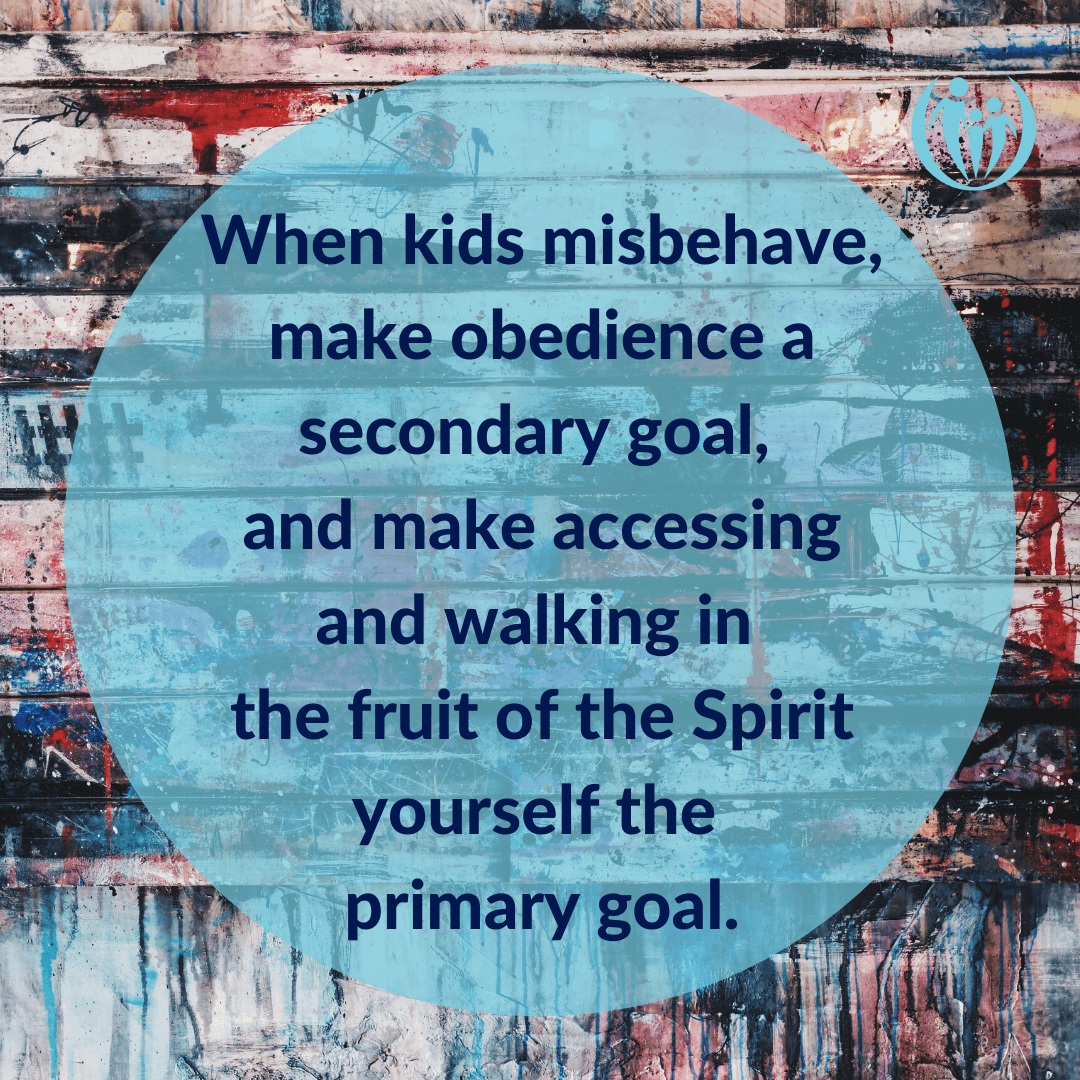
We Say “Stop!” They say, “NO!”
 Working with parents for over twenty years, we consistently see the following scenarios play out with kids of all ages:
Working with parents for over twenty years, we consistently see the following scenarios play out with kids of all ages:
- Parents say “Do this!” Kids refuse.
- Parents say “Stop!” Kids do it anyway.
- Parents say, “Come!” Kids dash the other direction.
This is the classic “my will” against “your will” parent/child struggle. Is it really possible to be living in step with the fruit of the Spirit when we are in the middle of discipline?
While nearly all children are oppositional at times, roughly 10% of kids are diagnosed with ODD (Oppositional Defiant Disorder). Our years of working with families who are struggling with this challenge has helped us learn some important lessons about what all children need.
PARENTS’ PRIMARY GOAL: OBEDIENCE
One misstep we see parents make when kids are defiant is to get drawn into the power struggle by making their primary goal immediate obedience. Don’t get me wrong, obedience is a good thing to aim for. But when immediate obedience is the primary goal, parents can lose sight of other important dynamics. Most importantly they might miss the opportunity to get to the heart of their child’s misbehavior.
It might happen like this: The parent says, “Do this!” The child says, “No!” The parent feels challenged and makes the demand more strongly in order to enlist obedience. The child responds with greater resistance and a battle ensues. The parent forcefully puts a consequence in place in order to “win” the battle.
WHEN PARENTS ARE DISRESPECTFUL
When a child’s defiance triggers our big reaction, parents can feel justified in behaving disrespectfully towards their child in the name of “dealing” with the disobedience. The thing is, kids are incredibly intuitive and will pick up on their parents’ inappropriate behavior. Kids either give in and comply (which is not obedience) or rebel further. Either way they usually become embittered or exasperated.
When kids defy us by doing the opposite of what we ask, it is one of the most powerful and memorable opportunities to model either:
- the deeds of the flesh, particularly hatred, discord, jealousy, outbursts of anger, or selfish ambitions. (See Galatians 5:19 – 22) or
- the fruit of the spirit, particularly peace, patience, gentleness, and self control. (See Galatians 5:22-23)
The choice we habitually make in these times of disobedience and disrespect will be as strong a teacher as any parenting choice we may make. This is especially true if we have intense children who challenge us often.
If we are serious about bringing kids up in the training and instruction of the Lord, the way we handle our children’s defiance may be the most critical piece of parenting we do. We interact with many parents who feel like they are fairly confident in the way they interact with their kids, but who struggle to be “living in step with the fruit of the Spirit” when kids act up. When this happens, kids often struggle too. Sensing the parent’s hypocrisy of “Do as I say, not as I do.” (or “Have a good attitude when mine is bad.”) these kids may rebel, or, to the extreme, become prodigals. All kids (regardless of how they were raised) have the capacity to make such choices. Research shows that parental responses that are authoritarian/controlling and most likely out of step with the fruit of the Spirit (especially if you are a professing Christian) seem to be a leading factor in kids avoiding a relationship with God later in life.*
A NEW PRIMARY GOAL? WALK IN THE FRUIT OF THE SPIRIT
We challenge you to set a new primary goal when your children defy you: Make obedience your secondary goal and make accessing and living “in step” with the fruit of the Spirit yourself the primary goal. We have repeatedly seen this approach gently guide kids toward sincere (as opposed to intimidated) obedience.
Let’s make this practical: When your child looks up at you and says “No!” to your request, take a deep breath and remember to respond “in step” with the Spirit. Then look back to the child and, in a relaxed and inquisitive tone ask, “No? What’s that about?” If the child can’t (or won’t) answer, then say, “I’m going to ask again in just a minute to give you a chance to answer my questions respectfully. Is there anything I can do to help you succeed?” This will let your child know that you are firm in your expectations but won’t be drawn into a fight.
We’ve found that giving some space will allow you to pray, ask the Holy Spirit for wisdom, and consider a wise and purposeful consequence if your child chooses to not obey you. Then – with both of you in a better frame of mind, see what happens! (If you’re already keenly aware and deeply discouraged about NOT living in step with the fruit of the Spirit during discipline, there is hope for you! Read about Lynne’s journey when change seemed so difficult and slow.)
As you begin to realize that your authority does not come from how big and loud you are but from your love for your child, you will be better equipped to walk in the Spirit.
As you begin to realize that your authority does not come from how big and loud you are but from your love for your child, you will be better equipped to walk in the Spirit. Calmly holding your children accountable to the expectations you set for them will help them experience your love in a deeper and more meaningful way. (Listen to this podcast to learn more.)
*See page 25 of this document. Or for a general reference to the impact of authoritarian parenting see this article.
Take 15 minutes to learn how to give consequences that teach, rather than simply punish, by downloading our free ebook Consequences That Actually Work.










